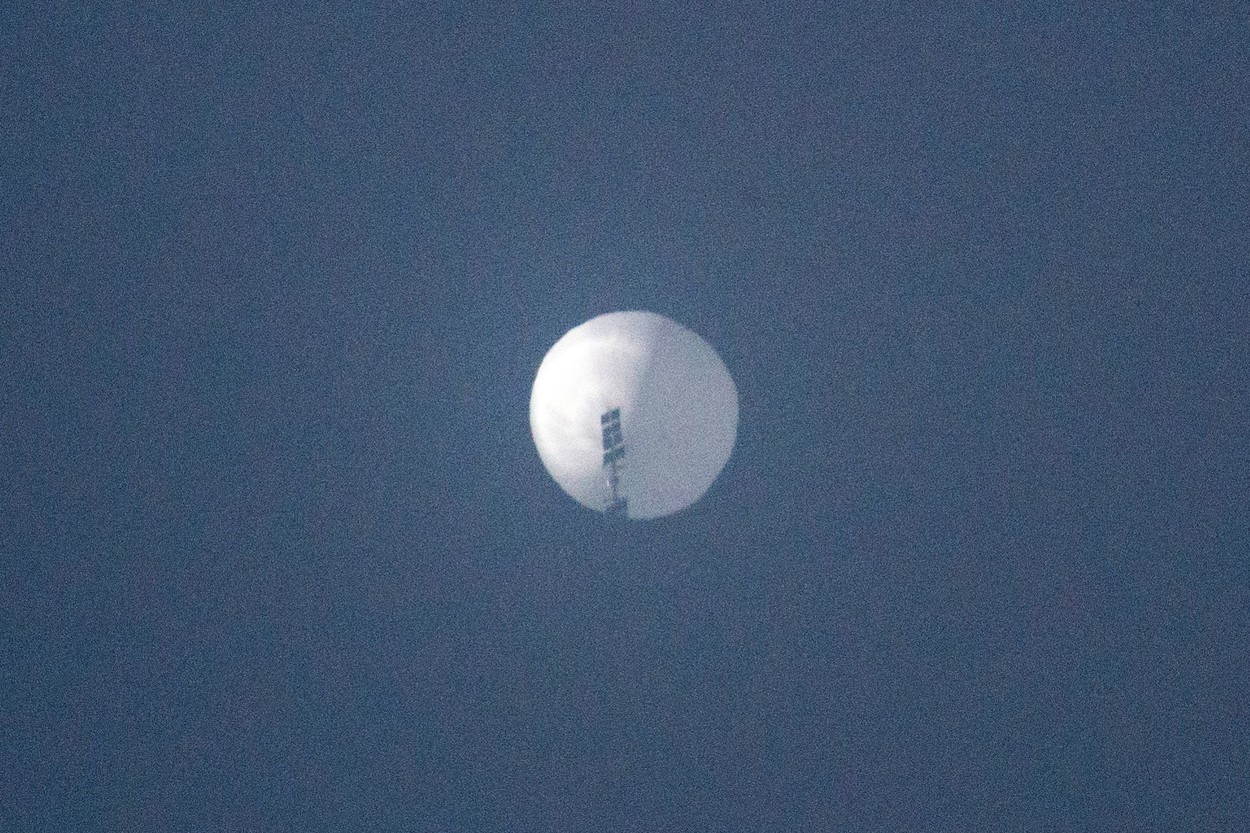
Days before Taiwan’s presidential election, expected to be held on January 13, the proliferation of Chinese balloons in the island’s skies reveals what the Taiwanese military says is “psychological warfare” being waged by Beijing in an attempt to influence the vote, which is seen as a weapon of both ends, the France Presse agency, citing Agerpres, noted on Monday.
Beijing regularly deploys its military, sending fighter jets, reconnaissance drones and warships around the island, whose sovereignty it disputes.
Since December, about 20 mysterious balloons have flown over the Taiwan Strait, which separates the island from mainland China, according to Taiwan’s Ministry of Defense, which sees it as harassment by the so-called “gray zone” to “affect the morale of our people”.
This type of tactic refers to aggressive actions carried out by the state without declaring open war, AFP notes.
“Beijing is demonstrating that it can violate Taiwan’s airspace and challenge its sovereignty,” said Raymond Kuo, a Taiwan expert at the US-based Rand Corporation.
China, which considers Taiwan an integral part of its territory, has promised to one day transfer the island under its jurisdiction and does not rule out the use of force to do so.
Beijing denies any interference
The Jan. 13 presidential election pits incumbent Vice President Lai Chin-te of the Democratic Progressive Party (DPP), a defender of the island’s sovereignty, and two candidates who favor rapprochement with China.
The timing of sending the balloons is “political”, Kuo told AFP.
“The Chinese Communist Party (CCP) is trying to demoralize the Taiwanese public ahead of the presidential and legislative elections,” the quoted expert said, adding that “Beijing is adding a new operational challenge to Taiwan’s military” to check them.
Taipei’s defense ministry on Saturday condemned “an attempt to use psychological warfare to affect the morale of our people,” calling the balloons a “serious threat” to air traffic.
Asked to comment on the matter, China’s defense ministry denied any allegations of meddling and accused Taiwan of trying to “manipulate the election”.
The balloons, which originate from China, became a sensitive political issue last year after the US shot down one of the devices, which it called a “spy” after it entered US airspace.
At the time, Beijing said it was a civilian airship that deviated from its trajectory.

Chinese spy balloon (Photo: Chase DOAK / AFP / Profimedia)
“Risk of disruption of air traffic”
Since December, more than 20 balloons have crossed the median line that separates the autonomous island from mainland China, and at least seven of them have flown over the island.
According to the Ministry of Defense in Taipei, they travel at altitudes between 12,000 and 36,000 feet (3.6 kilometers and 11 km) and have been detected both during the day and at night.
Jerry Sojatman, an independent aviation expert, says they “are a threat” because they “risk disrupting air traffic” because commercial planes typically fly at altitudes between 24,000 and 40,000 feet (7.3 kilometers and 12 km).
Calling it “irresponsible” to send the balloons to such a height, defense expert Su Tzu Yun said “the political goal is much more important than the military goal.”
Beijing “wants to raise doubts and worries to change the attitude of the Taiwanese people towards the election,” he told AFP.
“Beijing has also tried in the past. He turned against himself”
James Char, a China expert at the Institute for Defense and Strategic Studies in Singapore, recalls that Beijing had already conducted missile tests near Taiwan in 1996 in an attempt to intimidate voters and dissuade them from re-electing the president. is considered the “father of Taiwanese democracy”.
According to expert James Char, this move has “backfired”. “This forced the Taiwanese to vote for a president who was not pro-Beijing and not pro-unification,” he adds.
For his part, International Crisis Group expert Ivy Kwek believes that “the more Beijing uses coercion against Taiwan, the less effective these actions will be in scaring the Taiwanese.”
Supporters of front-runner for presidential candidate Lai Ching-te say they are not afraid.
“China often tries to intimidate Taiwan, but we Taiwanese are not easily intimidated,” Zheng, 62, told AFP.
Source: Hot News
Ashley Bailey is a talented author and journalist known for her writing on trending topics. Currently working at 247 news reel, she brings readers fresh perspectives on current issues. With her well-researched and thought-provoking articles, she captures the zeitgeist and stays ahead of the latest trends. Ashley’s writing is a must-read for anyone interested in staying up-to-date with the latest developments.